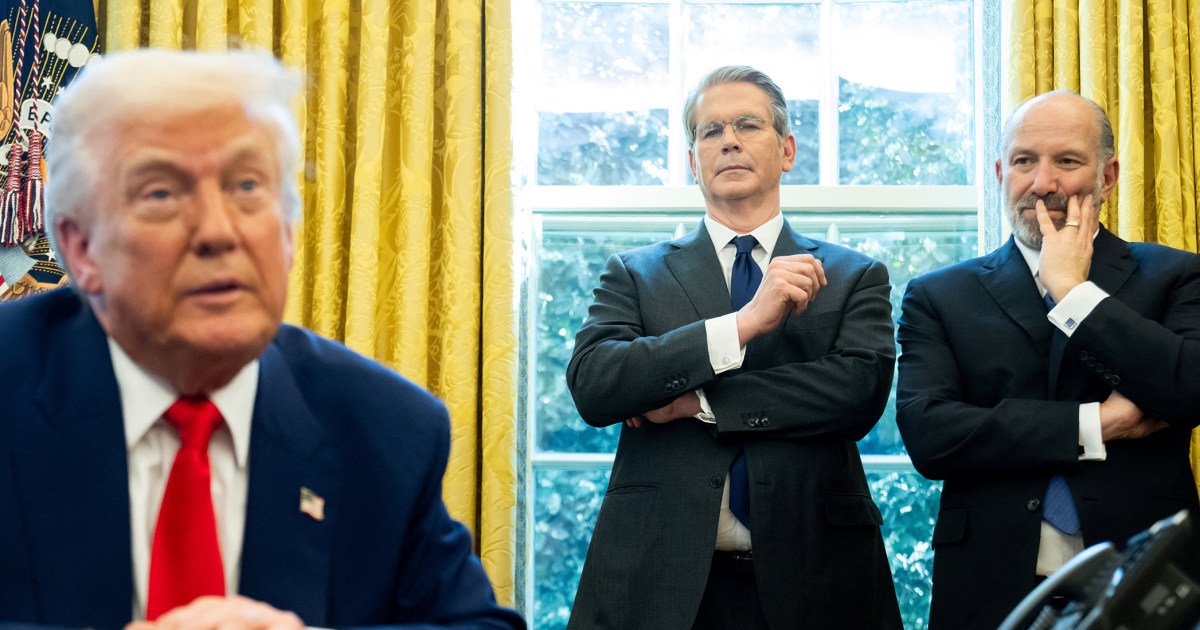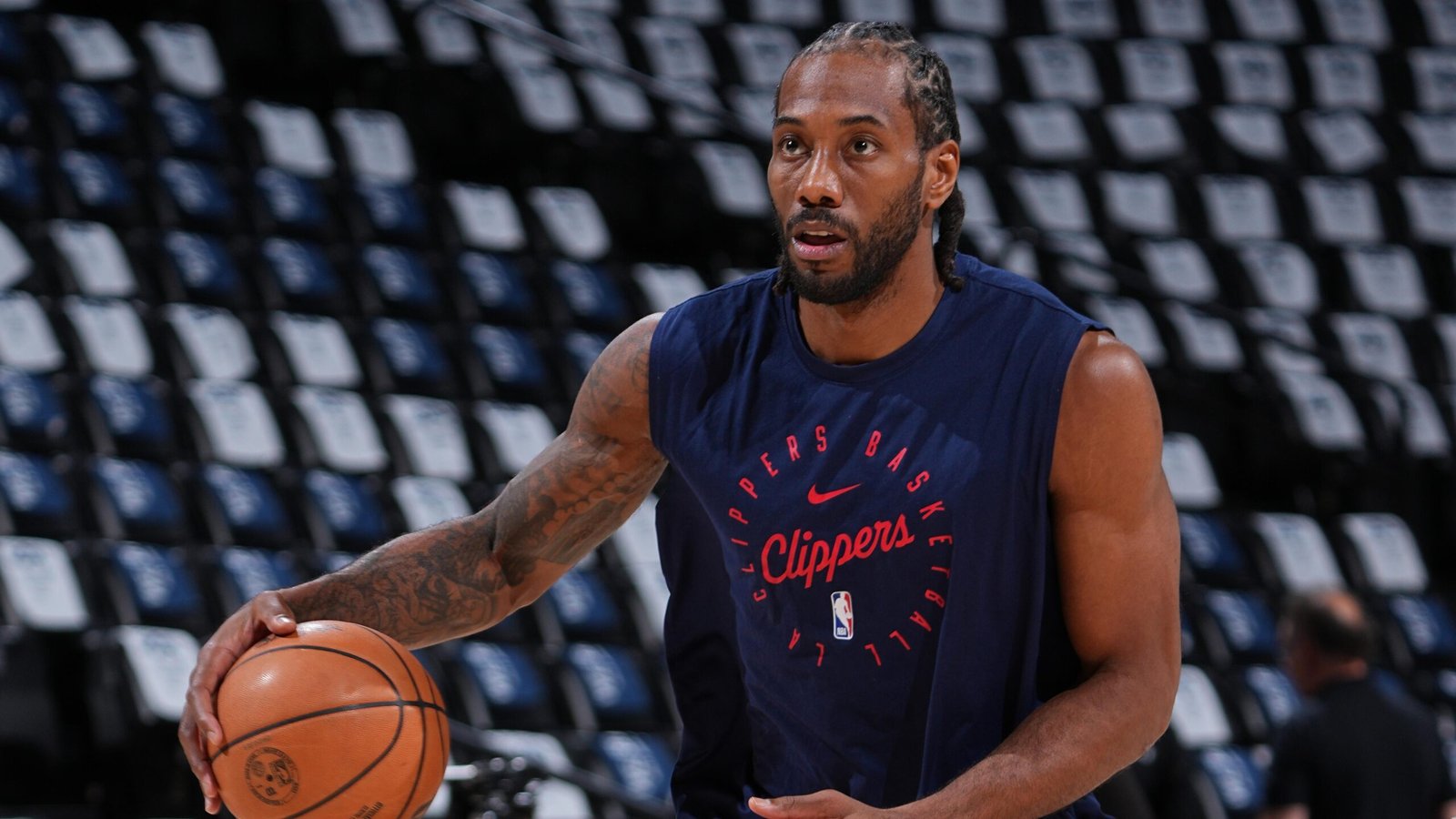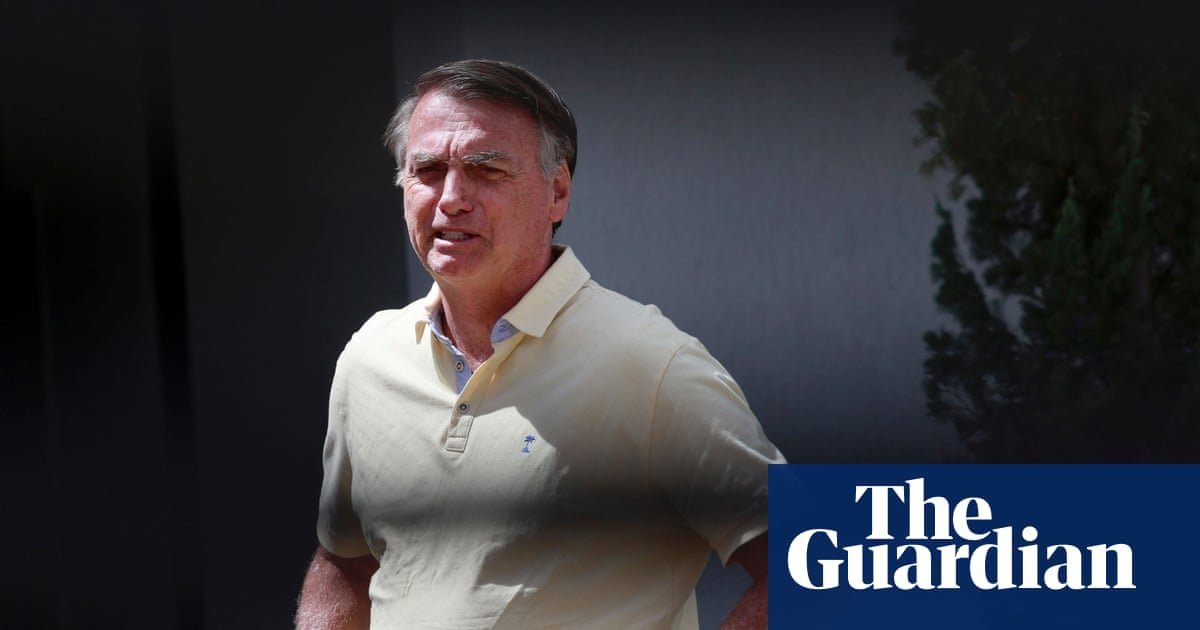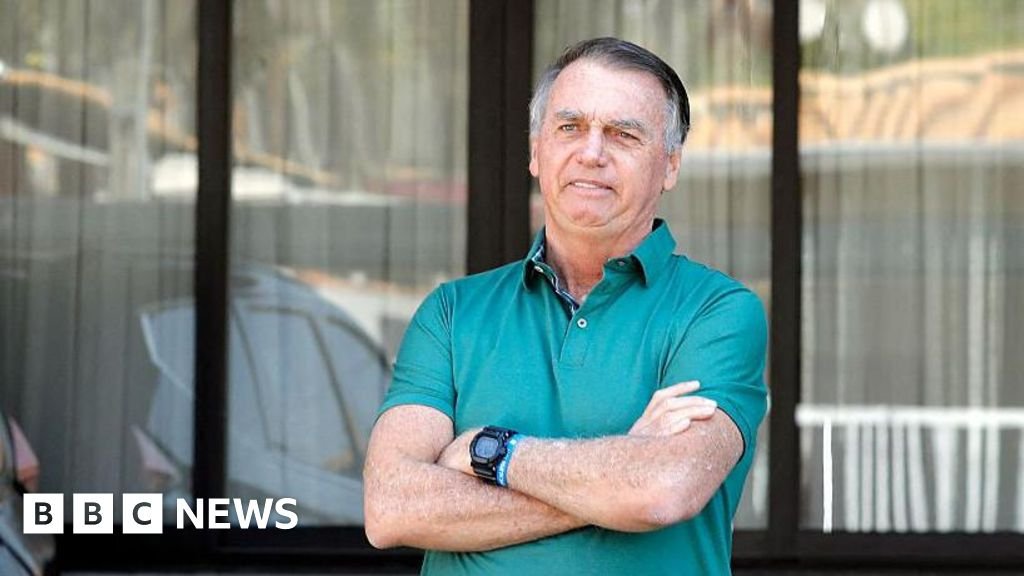Top Stories
Trump’s tariffs face crucial court test on eve of latest deadline

President Donald Trump’s global tariff regime heads to court Thursday in a fight for its survival.
Starting at 10 a.m. ET, a panel of 11 judges in Washington, D.C., will hear about 45 minutes of arguments each from the Trump administration and two small businesses that say many of his import duties are illegal.
Trump’s sweeping tariffs are set to go into effect Friday. Since he postponed the biggest hikes in April because of market turmoil, Trump has announced an array of tariff levels with about a dozen trading partners. Many of them closely resemble the rates Trump threatened to impose in early April, although some are higher and a few are slightly lower.
Businesses of every size have said tariffs have caused confusion and uncertainty and have made it extremely difficult to plan. “Retailers typically plan their inventories six to nine months in advance to meet seasonal demand. However, unpredictable and rapidly changing tariff policies are making it nearly impossible to forecast costs, place orders and manage supply chains effectively,” the National Retail Federation said in June.
V.O.S. Selections Inc., a wine and spirits importer, and Plastic Services and Products, a pipe and fittings company, sued Trump over his use of the International Emergency Economic Powers Act (IEEPA) of 1977, saying he has “no authority to issue across-the-board worldwide tariffs without congressional approval.”
The Court of International Trade initially blocked the tariffs in late May. It found that the import duties lacked “any identifiable limits” and that the law Trump cited in many of his executive orders did not “delegate an unbounded tariff authority to the President.” It also said the tariffs did not meet the test of an “unusual and extraordinary” risk to the country.
All of Trump’s tariffs on major trading partners, such as Canada, Mexico, China, the European Union, Japan, India, Brazil and a handful of other countries, have been deployed using the law.
“Congress has not delegated any such power,” the companies’ initial legal filing said. “And the President’s justification does not meet the standards set forth in the IEEPA. His claimed emergency is a figment of his own imagination: trade deficits, which have persisted for decades without causing economic harm, are not an emergency.”
“IEEPA nowhere mentions tariffs, duties, imposts, or taxes, and no other President in the statute’s nearly 50-year history has claimed that it authorizes tariffs,” the companies added in a filing with the appeals court.
The White House said in May about the case that trade deficits “have created a national emergency that has decimated American communities, left our workers behind, and weakened our defense industrial base.”
The court battle would not affect tariffs Trump implemented under other laws, such as 10% steel tariffs on the United Kingdom and 50% steel and aluminum tariffs on all other worldwide trading partners. Those tariffs were implemented under various sections of the Trade Act of 1974 and the Trade Expansion Act of 1962.
The companies also argue that such sweeping tariffs would be “devastating” to small businesses across the United States.
The panel of judges is not expected to rule this week. Regardless of the outcome, the losing party is likely to appeal to the Supreme Court, and the lingering uncertainty that has kept consumers and businesses in a bind for the better part of this year could remain.
The lawsuit is not the only challenge Trump’s tariffs and trade deals face, either. There are at least a dozen other lawsuits filed or in the early stages of being heard by courts.
In a similar lawsuit filed this month, an orange juice importer warned that the price of its products could soar as much as 25% for U.S. consumers. Trump said he would hit Brazil with 50% tariffs, citing a trade deficit that is actually a surplus. But Trump’s extraordinarily high levy is primarily due to the treatment of a political ally, former Brazilian President Jair Bolsonaro, and the treatment of tech companies — notably Elon Musk’s X.
Even if the court rules that Trump’s tariffs are illegal and blocks them, there are still a few other avenues the administration could take to keep them in place.
Trump could instruct the commerce secretary and the U.S. trade representative to launch investigations under Section 301 of the 1974 U.S. Trade Act against various trading partners, which would allow tariffs to be implemented after an investigation runs its course. Trump could also use Section 232 of the 1962 trade law, which he is already using for steel and aluminum duties.
Then, there is a never-before-used trade law. “Section 338 of the Trade Act of 1930 allows the President to impose tariffs of up to 50% on imports from countries that discriminate against the US,” Goldman Sachs’ chief U.S. political economist, Alec Phillips, said in a statement.
“This authority, which has never been used … limits the amount of the tariffs but does not require a formal investigation,” Phillips said.
In an essay on trade issues, Max Yoeli, a senior fellow at the U.K. think tank Chatham House, and Leslie Vinjamuri the president and CEO of the Chicago Council on Global Affairs, note that Trump could also “work with Congress to pass new legislation underpinning additional tariff authorities, but his administration has shown a strong preference for executive action to date.”
“The president has many other tools to coerce states and pursue his objectives, including expanding his use of sanctions and export controls,” they wrote.
Trump could also negotiate and agree to formal trade deals. So far, though, most of what he and his administration have called deals are not full-fledged pacts. Instead, they are framework agreements light on details announced on social media followed by slim executive orders.
However, formal trade deals typically take years to reach because of the highly complex nature of the U.S. and global economies. The United States alone has more than 12,000 possible tariff categories among 200 trading partners, according to the financial services firm UBS.
Congress could approve any formal trade deal without a court’s intervening.
CORRECTION (July 31, 8:31 a.m. ET): A previous version of this article incorrectly identified where a federal appeals court panel would hear arguments Thursday. It is in Washington, D.C., not New York.
Top Stories
Kawhi Leonard Reportedly Got Aspiration Payment Days After Clippers’ Wong Invested

In December 2022, Kawhi Leonard reportedly received a quarterly payment for his endorsement deal with Aspiration days after Los Angeles Clippers vice chairman Dennis J. Wong made an investment as the company was heading toward bankruptcy.
On the latest episode of Pablo Torre Finds Out (starts at 22:05 mark), newly obtained documents obtained by Pablo Torre showed Leonard received a $1.75 million payment from Aspiration nine days after a company registered to Wong made a $1.99 million wire transfer to Aspiration.
According to a company bank statement obtained by Torre, the investment in Aspiration from Wong’s DEA 88 Investments LLP occurred on Dec. 6, 2022. Leonard’s payment from aspiration was transferred on Dec. 15.
In the original reporting from Torre released last week, Leonard—through his KL2 Aspire LLC—agreed to a four-year, $28 million endorsement deal with Aspiration in April 2022. The deal came eight months after he signed a four-year, $176.3 million contract to remain with the Clippers in free agency.
Torre reported there’s no evidence that Leonard did any promotion for Aspiration, which received an initial $50 million investment from Clippers governor Steve Ballmer, and one anonymous employee who worked for the company said the endorsement deal was done to “circumvent the salary cap.”
In the new report released on Thursday, Torre, citing sources and a review of Aspiration’s cap table and bank statements, noted there’s no public evidence indicating Wong or his company had ever invested in Aspiration prior to December 2022.
It was also pointed out by Torre that Wong’s investor agreement with Aspiration presented him with detailed formal disclosures that the company was in default, was being sued for millions of dollars and facing inquiries from government agencies.
According to Torre’s reporting, documents from the agreed-upon deal between KL2 and Aspiration required quarterly payments of $1.75 million. The reported investment from Wong came after Aspiration had failed to satisfy the third quarter payment owed no later than Sept. 30, 2022.
Per ESPN’s Ramona Shelburne, the Clippers announced in September 2021 a $300 million partnership with Aspiration. The deal came with a sponsorship in their new arena and a patch on the jerseys.
Aspiration filed for Chapter 11 bankruptcy on March 31, 2025.
In response to Thursday’s report, Wong did not respond to Torre’s questions about the investment, while the Clippers provided a statement.
“The details of our relationship with Aspiration are under NBA investigation, but it is clear the company was a house of cards that defrauded Steve and many others,” the Clippers said. “We look forward to sharing the facts with the league and providing them with all the information they need.”
In an interview with Shelburne on Sept. 5, Ballmer denied allegations that the Clippers did anything to try circumventing the NBA salary cap and accused Aspiration of fraud.
“These were guys who committed fraud,” Ballmer added. “…They conned me. I made an investment in these guys thinking it was on the up and up and they conned me.”
The Clippers issued a statement denying that anyone in the organization, including Ballmer, were involved in any attempt to circumvent the salary cap.
Ballmer did say he set up in the introduction between Aspiration and Leonard, but that was as far as his involvement went.The NBA did confirm on Sept. 3 it had opened an investigation into the situation.
NBA commissioner Adam Silver told reporters on Wednesday he “never heard a whiff of anything” about Leonard, the Clippers and potential cap circumvention.
The NBA previously investigated the Clippers in 2020 over allegations that they violated league rules in recruiting Leonard when he was a free agent in the summer of 2019. They were ultimately cleared, as the league found no evidence of any wrongdoing.
Top Stories
Brazil’s supreme court finds Bolsonaro guilty of plotting military coup | Jair Bolsonaro

A majority of Brazil’s supreme court judges have voted to convict the country’s former president Jair Bolsonaro of plotting a military coup, leaving the far-right populist facing a decades-long sentence for leading the criminal conspiracy.
Justice Cármen Lúcia Antunes Rocha ruled on Thursday that Bolsonaro – a former paratrooper who was elected president in 2018 – was guilty of seeking to forcibly cling to power after losing the 2022 election, meaning three of the five judges involved in the trial had found Brazil’s former leader guilty.
Delivering her decisive vote, Rocha denounced what she called an attempt to “sow the malignant seed of anti-democracy” in Brazil – but celebrated how the country’s institutions had survived and were fighting back.
“Brazilian democracy was not shaken,” Rocha told a court in the capital, Brasília, warning of the spread of “the virus of authoritarianism”.
On Tuesday, two other judges, Alexandre de Moraes and Flávio Dino, also declared the 70-year-old politician guilty of leading what the former called “a criminal organisation” that had sought to plunge the South American country back into dictatorship.
“Jair Bolsonaro was leader of this criminal structure,” Moraes said during a five-hour address in which he offered a comprehensive account of the slow-burn conspiracy against Brazilian democracy.
“The victim is the Brazilian state,” said Moraes, claiming the plot had unfolded between July 2021 and January 2023, when Bolsonaro supporters rampaged through Brasília after the election’s leftwing winner, Luiz Inácio Lula da Silva, took power.
A fourth judge, Luiz Fux, voted to absolve Bolsonaro on Wednesday, claiming there was “absolutely no proof” the former president had been aware or part of an alleged plot to assassinate Lula and Moraes in late 2022, or had tried to stage a coup.
Fux called the 8 January 2023 uprising – when hardcore Bolsonaristas ransacked the supreme court, presidential palace and congress – a “barbaric act” that had caused “damage of an Amazonian-scale”. But the judge, who also controversially argued that the court lacked jurisdiction over the case, claimed there was no proof Bolsonaro was to blame for inciting the riots.
Fux did, however, vote to convict two of Bolsonaro’s closest allies – his former defence minister Gen Walter Braga Netto and his former aide-de-camp Lt Col Mauro Cid – for the crime of violently attempting to abolish Brazilian democracy. The judge concluded that the pair had helped plan and bankroll a plot to murder Moraes in order to generate social mayhem they hoped would trigger a military intervention.
Bolsonaro’s sentence is expected to be set on Friday after the remaining judge, Cristiano Zanin, has cast his vote. Experts say the sentence for crimes including engineering a coup d’état and violently attempting to abolish Brazil’s democracy could be as high as 43 years. The former president did not attend court this week, remaining in his nearby mansion, where he is under house arrest and where police officers have been stationed to ensure he does not flee to one of Brasília’s foreign embassies.
Progressive elation at the downfall of a president blamed for rampant environment destruction, hundreds of thousands of Covid deaths and attacks on minorities, has been tempered by the realisation that his political movement remains very much alive. Some fear Fux’s questioning of the judges’ authority over the case could open the door to legal challenges and even the trial’s annulment in the future.
“I wouldn’t declare Jair Bolsonaro’s political death,” said Dr Camila Rocha, a political scientist from the Brazilian Centre for Analysis and Planning who studies the Brazilian right.
Rocha expected supporters of the former president to keep fighting to rescue their leader from jail. Likely strategies included trying to elect a large number of rightwing senators in next year’s elections who could impeach members of the supreme court considered Bolsonaro’s foes; petitioning Donald Trump to heap more pressure on Brazil over Bolsonaro’s plight; and trying to ensure that a pro-Bolsonaro candidate beats Lula in the 2026 presidential election. Their hope was that a rightwing president might grant Bolsonaro a pardon, although the supreme court could torpedo those plans, she said.
“I think they’ll continue trying various ways of getting Bolsonaro out of jail and to uphold his leadership and keep him visible,” she predicted.
In recent weeks, pro-Bolsonaro lawmakers have been pushing the idea of an amnesty for their leader and others who were involved in the coup attempt and the 8 January 2023 riots in Brasília. They claim such forgiveness would help “pacify” a politically divided country.
But Fabio Victor, the author of a book about military involvement in Brazilian politics called Camouflaged Power, said he believed an amnesty would serve as an “incentive to illegality”. “It would send an awful signal – it would undoubtedly represent a setback to democracy,” he warned.
More details soon…
Top Stories
Brazil’s former president Bolsonaro found guilty of coup plot

The former president of Brazil, Jair Bolsonaro, has been convicted of plotting a military coup.
Three out of five Supreme Court justices found the 70-year-old guilty of leading a conspiracy aimed at keeping him in power after he lost the 2022 election to his left-wing rival, Luiz Inácio Lula da Silva.
While the plot failed to enlist enough support from the military to go ahead, it did culminate in the storming of government buildings by Bolsonaro’s supporters on 8 January 2023, the justices found.
One justice acquitted Bolsonaro and a final one is yet to vote, but the simple majority is enough to convict the former president, who could now face decades in jail. He will be sentenced on Friday.
The former president’s fate was sealed on Thursday when Justice Carmén Lúcia cast her vote.
She found him guilty on all the five charges: attempting to stage a coup, leading an armed criminal organisation, attempted violent abolition of the democratic rule of law, and two more charges related to the damage of property during the storming of buildings in Brasília on 8 January 2023.
-

 Business2 weeks ago
Business2 weeks agoThe Guardian view on Trump and the Fed: independence is no substitute for accountability | Editorial
-
Tools & Platforms1 month ago
Building Trust in Military AI Starts with Opening the Black Box – War on the Rocks
-

 Ethics & Policy2 months ago
Ethics & Policy2 months agoSDAIA Supports Saudi Arabia’s Leadership in Shaping Global AI Ethics, Policy, and Research – وكالة الأنباء السعودية
-

 Events & Conferences4 months ago
Events & Conferences4 months agoJourney to 1000 models: Scaling Instagram’s recommendation system
-

 Jobs & Careers2 months ago
Jobs & Careers2 months agoMumbai-based Perplexity Alternative Has 60k+ Users Without Funding
-

 Podcasts & Talks2 months ago
Podcasts & Talks2 months agoHappy 4th of July! 🎆 Made with Veo 3 in Gemini
-

 Education2 months ago
Education2 months agoMacron says UK and France have duty to tackle illegal migration ‘with humanity, solidarity and firmness’ – UK politics live | Politics
-

 Education2 months ago
Education2 months agoVEX Robotics launches AI-powered classroom robotics system
-

 Funding & Business2 months ago
Funding & Business2 months agoKayak and Expedia race to build AI travel agents that turn social posts into itineraries
-

 Podcasts & Talks2 months ago
Podcasts & Talks2 months agoOpenAI 🤝 @teamganassi

